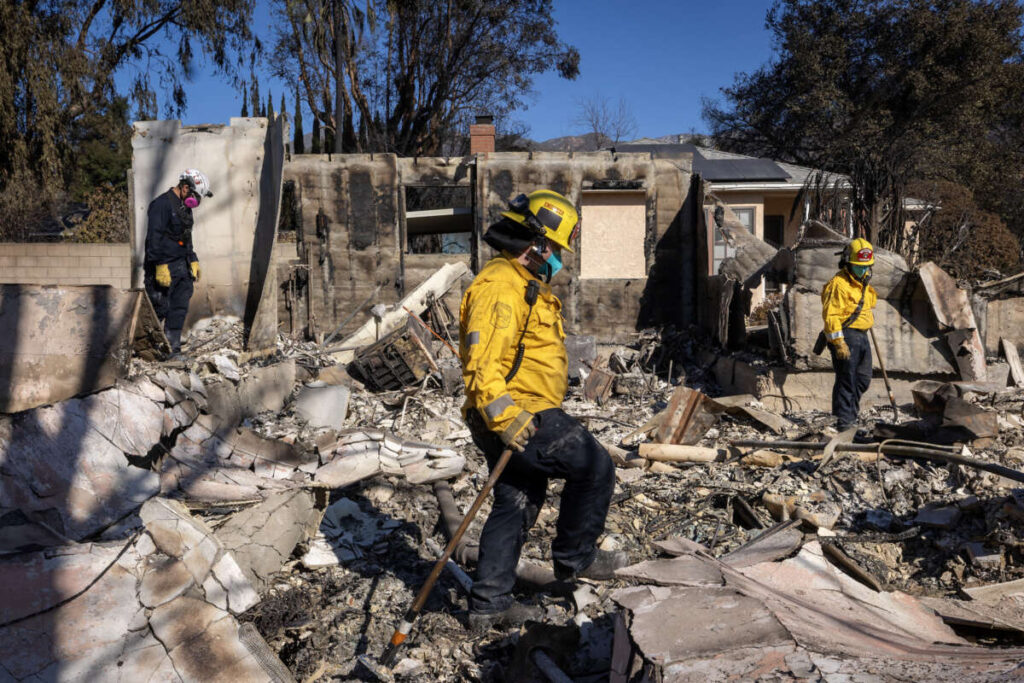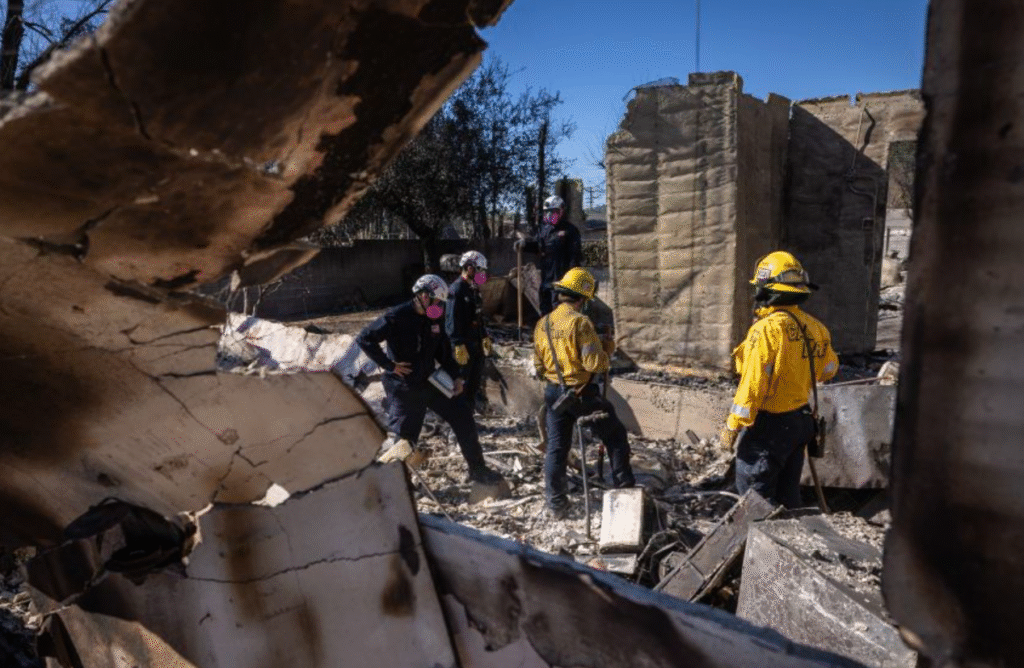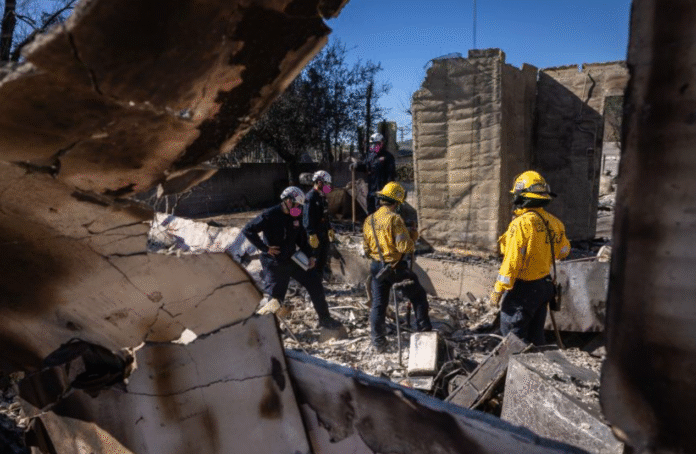FEMA Workers Criticize Trump Cuts Amid Suspensions
FEMA workers criticize Trump cuts as reports reveal that several employees at the Federal Emergency Management Agency have been placed on administrative leave. According to multiple sources, these workers had signed an open letter raising alarms about how former President Donald Trump’s budget cuts and policy changes could jeopardize the nation’s disaster response system.
The controversy comes at a crucial time when America faces repeated natural disasters, from hurricanes and floods to wildfires. While some defend the agency’s reforms, others argue that the suspensions silence experienced professionals during one of the most dangerous disaster seasons in recent history.

The Letter That Sparked FEMA Suspensions
The open letter, signed by nearly 200 FEMA employees, drew attention to what they described as a “crisis in disaster preparedness.” In it, staff accused Trump officials of pushing cuts to funding, discouraging climate science, and failing to appoint permanent leadership at the agency.
They warned that unless changes were made, America risked facing another tragedy on the scale of Hurricane Katrina, which claimed more than 1,800 lives nearly two decades ago.
Shortly after the letter surfaced, more than 20 employees received emails notifying them of immediate administrative leave. Sources later suggested the number could be closer to 30, though the agency insisted the suspensions were “not disciplinary.”
Trump’s Approach to FEMA
When Trump returned to the White House in January, he wasted no time reshaping the Federal Emergency Management Agency. He floated the idea of eliminating FEMA entirely, arguing that disaster response should be handled by state governments.
He frequently criticized FEMA as inefficient and bureaucratic, pledging to cut costs and reduce federal involvement. According to reports, nearly one-third of FEMA’s workforce has left since the start of Trump’s second term, a statistic raising alarm among critics who say the agency is being hollowed out from within.
FEMA’s Defense of the Reforms
In response to growing backlash, FEMA officials defended the suspensions and broader reforms. A spokesperson said the agency’s priority was “serving disaster survivors, not protecting broken systems.” They added that resistance from within was “expected” as reforms were introduced.
Supporters argue that FEMA had been bogged down by red tape and inefficiency for decades, and that drastic change was necessary. Still, the optics of suspending disaster experts during hurricane season has fueled concerns about whether the agency can respond effectively to emergencies. FEMA workers criticize Trump cuts.
Real-World Consequences: Texas Flooding
The debate is not theoretical. Earlier this year, deadly flooding in Texas raised new questions about FEMA’s readiness. At least 27 children and staff at a summer camp were killed, along with dozens more residents across the state.
Critics argued that cuts and staff departures hampered the response. However, FEMA’s acting administrator described the operation as a “model” of disaster management.
The suspensions add a new layer of uncertainty. At least two of the sidelined employees had been directly involved in the Texas response, leaving some lawmakers worried about the agency’s capacity to handle future crises.
A Divided Political Response: FEMA workers criticize Trump cuts
Reaction to the controversy has been split along political lines. Trump supporters argue that entrenched bureaucrats are resisting reforms necessary to modernize FEMA. Detractors counter that silencing experts in the middle of an active disaster season is reckless and could cost lives.
Minnesota Governor Tim Walz said he fears FEMA’s troubles reflect a wider issue of national unpreparedness: “We’ve seen how devastating these events can be. Communities should not have to question whether the federal government is ready to help.”
Meanwhile, the Biden-Harris team and congressional Democrats are demanding oversight hearings to review FEMA’s staffing and funding under Trump’s leadership.

Looking Back: Lessons from Hurricane Katrina
The letter from FEMA staffers drew heavily on the legacy of Hurricane Katrina, one of the worst disasters in U.S. history. In 2005, federal mismanagement contributed to massive loss of life in New Orleans.
For FEMA employees, Katrina is a cautionary tale of what happens when leadership is weak and resources are insufficient. The suspended staff say they spoke out because they see troubling parallels between then and now.
Climate Change and Rising Risks
Another major concern highlighted in the letter was the “censorship of climate science.” FEMA insiders claim that acknowledging the role of climate change in worsening disasters is essential for long-term planning.
With rising sea levels, hotter summers, and stronger storms, scientists warn the U.S. faces increasingly severe disasters. Critics argue that ignoring climate data undermines FEMA’s ability to protect vulnerable communities.
For example, the National Oceanic and Atmospheric Administration (NOAA) predicts a more intense Atlantic hurricane season due to unusually warm ocean waters. Experts say any weakening of FEMA’s capabilities could put millions at risk.
Conclusion: A Nation Watching FEMA Closely
As FEMA workers criticize Trump cuts and face suspensions, the future of America’s disaster readiness hangs in the balance. Supporters say reforms are overdue, while critics argue the system is being gutted when it is needed most.
With hurricane season underway and climate risks mounting, the stakes could not be higher. Whether FEMA can rise to the challenge, or buckle under political pressure, will determine how well the U.S. weathers the storms ahead.

